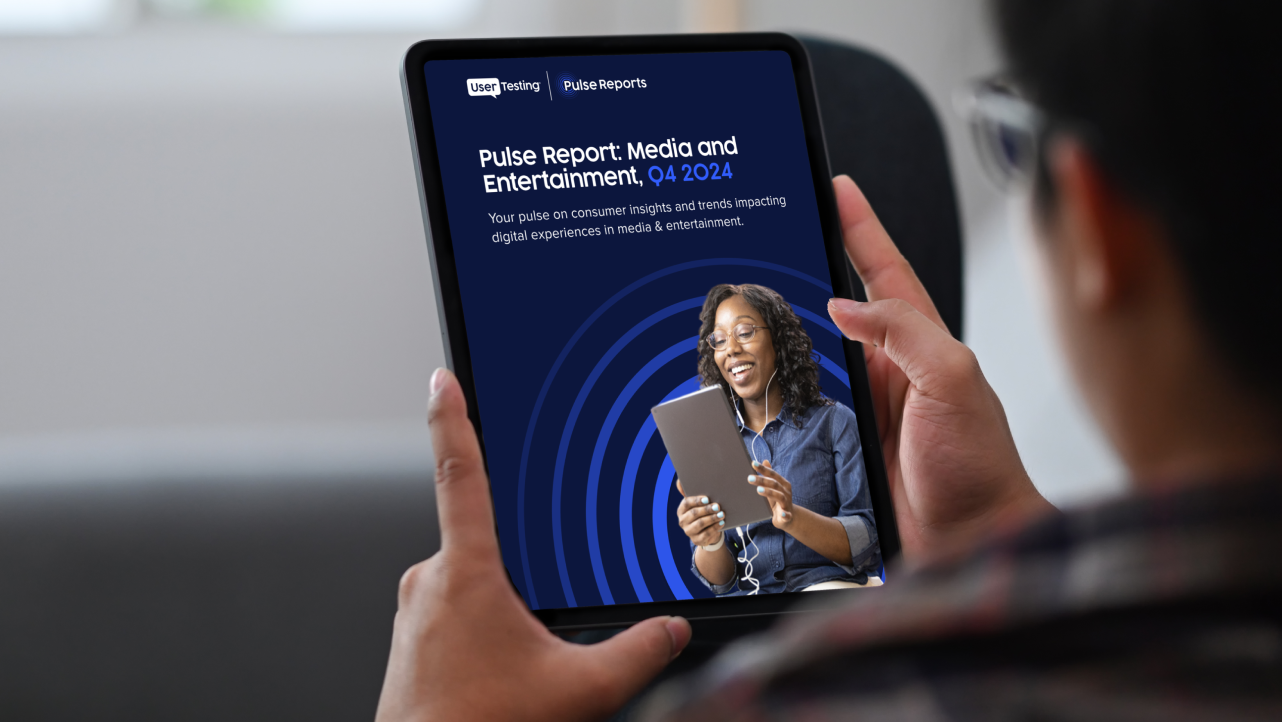
In this report
Stream fatigue goes global: survey reveals viewers spend days deciding what to watch
Stream fatigue goes global: survey reveals viewers spend days deciding what to watch

The era of streaming promised convenience, variety, and flexibility—entertainment on demand, free from the constraints of cable TV. Yet, as platforms multiply and content libraries grow, a new problem has emerged: decision fatigue. A recent UserTesting survey conducted by Talker Research reveals a striking statistic—Americans spend an average of 110 hours per year, or nearly five full days, simply trying to decide what to watch.
This issue transcends borders. Streaming audiences across the United States, Australia, and the United Kingdom report similar struggles, from endless scrolling to frustration over hidden fees and complicated user interfaces. The once simple proposition of "watch what you want, when you want" has become more complex, with an overwhelming number of options often leading to dissatisfaction.
The study also highlights a paradox of choice: while 75% of US respondents appreciate streaming algorithms for offering personalized recommendations, many find the sheer volume of suggestions daunting. Across regions, users grapple with balancing their desire for variety and control against a growing sense of being overwhelmed.
These findings are more than an indictment of modern streaming platforms—they offer a roadmap for improvement. By addressing issues like decision fatigue, transparency in pricing, and usability, streaming services have an opportunity to regain the loyalty of their subscribers. This report explores the streaming experience in three key markets—the US, Australia, and the UK—revealing unique consumer insights while uncovering universal frustrations and desires.
Streaming, once heralded as the ultimate solution for accessible entertainment, is now at a crossroads. Platforms that can simplify the decision-making process, enhance user interfaces, and align their offerings with consumer expectations will define the future of entertainment in an increasingly saturated market.
To explore the topic further, UserTesting commissioned a global survey of 4,000 adults in the US, Australia, and the UK to gain insights into their experiences, pain points, and perceptions around streaming services.
The survey included streaming media consumers across three countries:
- United States: 2,000
- Australia: 1,000
- United Kingdom: 1,000
United States: struggling with choice overload

Content overwhelm and algorithm fatigue
For US consumers, the convenience of streaming has introduced new challenges, particularly in content discovery. Despite the abundance of options, nearly one in five Americans feel it is harder to find something to watch now than it was a decade ago. The study revealed that many are overwhelmed by large content libraries and the ever-growing volume of original programming.
While 75% of respondents appreciate streaming algorithms for providing accurate recommendations, more than half admitted they feel overwhelmed by the sheer volume of content presented, wanting to watch everything suggested.
Frustrations with hidden fees and subscription management
Hidden fees and subscription fatigue also contribute to dissatisfaction among US subscribers. Many reported frustration with additional charges for premium content and the frequent removal of shows without notice.
Nearly 69% said they had encountered situations where a show they planned to watch was suddenly unavailable, directly impacting their loyalty to the platform. Cancellation processes further exacerbate frustration, with 23% of respondents finding it difficult to cancel subscriptions due to complicated processes or unclear options.
What Americans want in a dream platform
When asked about their ideal streaming platform, US respondents prioritized ad-free experiences, user-friendly interfaces, and premium channels at no extra cost. While the average consumer is willing to pay $46 per month for such a service, a small segment—11%—would pay over $100 for a platform that delivers on all their expectations.
As Bobby Meixner, Senior Director of Industry Solutions at UserTesting put it,
Streaming has shifted from solving the problem of access to creating a new challenge of discovery. Our research shows that viewers spend nearly five days a year deciding what to watch—time they could use to actually enjoy content.

Australia: navigating variety with simplicity

Streaming overtakes cable viewing
In Australia, streaming services are widely embraced as an alternative to cable, with 65% of cable subscribers reporting they spend more time streaming than watching traditional TV. However, Australians face similar struggles with content overload.
The average person spends 16 minutes a day deciding what to watch, underscoring the decision fatigue caused by large content libraries. Many respondents noted that they feel overwhelmed by the number of choices available, and 41% said they would switch platforms just to continue watching a favorite show that was removed from their current service.
Frustrations with fees and usability
Hidden fees are another significant frustration for Australian subscribers, with 79% expressing dissatisfaction over added charges for premium content. These frustrations often lead to cancellations, with many respondents canceling subscriptions once they finish watching a specific show.
Platform interfaces also play a significant role in subscription decisions, with 52% of Australians highlighting the importance of intuitive navigation and usability.
Australians’ vision of the perfect platform
When envisioning their ideal streaming service, Australians placed a premium on simplicity and value. Ad-free content topped the list of desired features, followed closely by premium channels included at no extra cost and easy-to-navigate interfaces.
While Australians are willing to pay an average of AU $39 per month for their dream platform, two-thirds indicated they wouldn’t pay more than AU $30. These findings highlight the delicate balance streaming services must strike between offering variety and maintaining simplicity to meet consumer expectations.

United Kingdom: the rise of streaming and the cost of choice

Streaming has become the preferred entertainment source
In the UK, streaming platforms have become the primary entertainment source for many, with 62% of respondents spending more time on streaming services than cable TV. While most British consumers believe it is easier to find something to watch today than ten years ago, 20% disagree, citing content overload and the complexity of navigating multiple platforms. For these users, larger content libraries often feel more like a hindrance than a benefit.
Challenges with fees, loyalty, and cancellation
Frustrations with streaming services extend beyond content selection. Hidden fees remain a key issue, with 84% of respondents expressing dissatisfaction with additional charges for premium content.
Many also reported encountering situations where shows were removed without notice, with 69% saying this directly affected their platform loyalty. Meanwhile, 20% of respondents found cancellation processes unnecessarily complicated, often involving unclear steps or persistent efforts from customer service to retain subscriptions.
The UK’s ideal streaming platform
Despite these challenges, British consumers are clear about what they value in a streaming service. Respondents emphasized the importance of ad-free experiences, premium channels included at no additional cost, and classic TV shows readily available.
On average, UK consumers are willing to pay £27 per month for their dream platform, though over half stated they wouldn’t pay more than £20. While British subscribers recognize the value of advanced algorithms, they prioritize simplicity, transparency, and user-friendly experiences in their streaming choices.

Evolving with consumer needs and preferences
Streaming subscribers across the United States, Australia, and the United Kingdom are united in their desire for platforms that combine variety with simplicity. Hidden fees, decision fatigue, and complicated cancellation processes remain critical pain points, driving dissatisfaction and impacting platform loyalty.
As the streaming industry evolves, services that deliver intuitive interfaces, transparent pricing, and streamlined content discovery will stand out in an increasingly competitive market. By addressing these challenges, platforms can ensure a more engaging and rewarding experience for their subscribers.
Survey methodology
Talker Research surveyed 2,000 general population Americans, 1,000 Australian adults, and 1,000 British adults; the survey was commissioned by UserTesting and administered and conducted online by Talker Research between November 2, 2024, and November 7, 2024.

Stay ahead of media and entertainment trends
Discover how media companies can adapt to shifts in consumer preferences and habits and seize new digital opportunities.